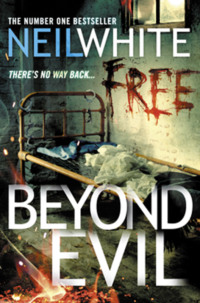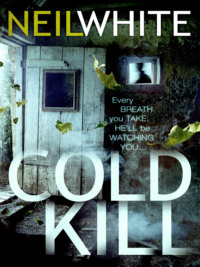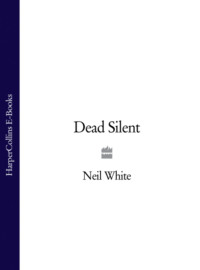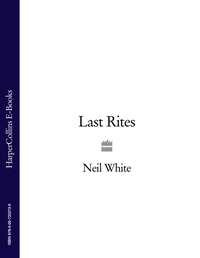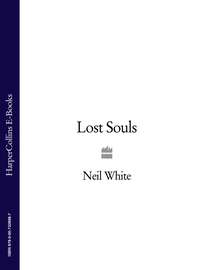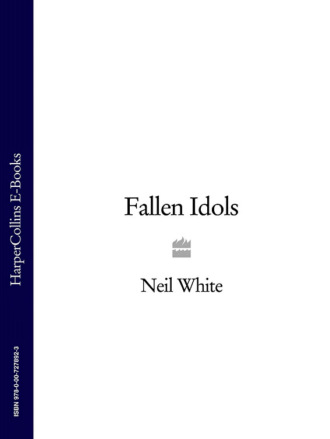
Полная версия
FALLEN IDOLS
He didn’t say much, and I could tell he was unsure. Was I the shooter? He didn’t know. He was young, maybe younger than my own thirty-two. ‘Quiet,’ was all he said.
‘Have you got the shooter hemmed in?’
He smiled warily. ‘This is turning into an interview.’
I smiled back, wider, more teeth. ‘Oh, come on, officer. It’s all going to come out.’
He looked like he was going to start talking, like he was fighting an urge to help, to tell a story, but the conversation was broken up by the chop-chop of a news helicopter buzzing the scene for footage. We both looked up, but when I looked down again he had straightened himself, set his pose.
‘Vultures, aren’t they,’ he said, flicking his eyes to the sky.
I shrugged. ‘Freedom of speech,’ I said, giving it one last try. ‘It’s a human right.’
‘And so is the right to silence,’ he replied, and then turned away.
I said nothing. I just wanted to keep my camera, not have it seized as evidence. I knew what was on there was valuable. The encounter with the policeman was already part of the story.
I looked at the pictures I had taken, I knew I was right. There it was, a small splash of colour on the back screen of my camera, the biggest story of the week. I zoomed in, just to make sure, but I knew. I had recognised the body as soon as I had seen it. Henri Dumas, the Premiership’s top scorer, last seen wearing the big money blue.
I was stunned, too surprised to do anything at first. I took a deep breath and rubbed my eyes, weighing up the need for sleep against the need for the big story. I was freelance. I could go to bed, or have another beer. Let the big guys have their day.
I smiled to myself. Maybe it was my turn for the big time.
Turners Fold, Lancashire, is a small slate town on the edge of the Pennines, an industrial template, surrounded by scrap grass hills and the shadow of Pendle Hill, green at the base, bracken brown at the top, barren, always dark with cloud.
Turners Fold, ‘the Fold’ to the locals, is typically northern: tough, proud, and hard-working. The colour is dark. The grass around it grows short and clings to the hills like stubble, broken only by grey stone walls. The towns and villages are all close by, but the hills intervene, and at night they sit like shadows, topped by the orange glow from the next town.
Like most mill towns, there was nothing before cotton. It breathed life into the town, built its buildings, shaped its people.
But it made the people tough, smothered the town in smoke and scarred the green hills in strips of terraced housing, lined up like computer memory, gutters zigzagging like saw-teeth, doors and windows right onto the streets, dots and bumps in the smooth lines. Cotton owned the town and owned the people, gave them a living, a bond.
The mills have gone now, the land left behind filled with prefab community centres and self-assembly superstores. Some tall chimneys are left, redbrick, out of keeping with the blackened millstone grit that makes up most of the town, reminders of what had once been. A canal runs through the centre, low metal bridges connecting the two sides of the town, weekend barges now the visitors. A hundred years ago the children went to work, their nimble hands good for the machines. Now, they hang around in packs, their faces hidden, living off cheap lager and stolen diazepam.
Just as cotton built the houses, the cotton kings sought a legacy in the civic buildings in the small triangular centre of town, large and impressive against the strips of Victorian shopfronts, dusty and dark, faded glory fighting against the superstores in the next town. Banks, pubs and estate agents cluster around the triangle, spilling onto nearby streets, spreading out like the points on a compass. In the middle of it all is the Horrocks clock, black and white face on a tall stone monument, hemmed in by the town hall and the old Post Office, just by the cobbled town triangle.
The Swan Inn was humming nicely nearby. The name didn’t fit. It had neither grace nor beauty, it was just somewhere for the daytime crowd of never-worked and laid-off to swap stories and hide away. The whole place smelled of old smoke and spilled ale, the varnish on the small round tables cracked like veins and covered in white rings. A large screen hung from the ceiling at one end and there was a pool table at the other.
Two men were sitting on stools by the bar. They were just passing time, swapping tales over warm beer, watching the landlord prop up the bar in the other room, the snug, kept away from them by the wooden partition with stained-glass edges.
One of the men was Bob Garrett, the best policeman in Turners Fold never to be promoted. Middle-aged, his back not quite as straight as maybe it once was, the hair not quite as full either and scattered with grey. But there was a sharpness about him, like he could sense what was going on around him, a stern calm, the eyes brooding and mean. His jaw was set firm, no slack-jawed gum-chew.
He’d looked after the townspeople for twenty years, joined up after walking away from a lower-division football career to spend more time with his young wife and even younger son. He made new drinkers twitchy, drinking on the way home in his black trousers and white shirt, the creases and stiff collar marking him out, but when he was off-duty he was done with judging.
He looked up when he heard a shout.
‘What is it?’ he asked.
It was the landlord.
‘Somebody’s shot Dumas! Look, look! Henri Dumas, he’s fucking dead.’
‘What are you talking about?’
The landlord pointed excitedly at the television, permanently tuned to a sports channel, his stomach quivering with excitement, the sign of too long in the job. The drinkers in the bar shuffled towards the screen, the intermittent barks of conversation hushed into silence.
‘Look at the news. Someone’s shot Dumas.’
‘What? Henri Dumas?’ asked an old man, looking up from his copy of the Valley Post.
‘Is there another? Someone has killed him.’ The landlord reached for the remote to turn up the volume and then grabbed a glass without looking to pour himself a beer, the bitter all tumbling froth.
There was the sound of glasses being put down and then a respectful silence as the latest news from London echoed around the bar. Bob Garrett stared in disbelief.
The landlord walked away, his beer settling in the glass, shouting his opinion as he went. Foreign players. Bring nothing but trouble. Someone shouted that maybe he took a dive. The bulletin soon gave way for a Gillette commercial and everyone drifted back to their space. Bob Garrett watched them all go and then turned back to the television, wondering what sort of world lets people shrug off someone being killed in cold blood.
It didn’t take him long to realise that he didn’t have the answer, so he turned back to his drink. He looked around as he lifted the glass. The news had been a break in the day, nothing more.
THREE
It was quiet when Laura McGanity walked towards the corner of Old Compton Street and Greek Street. She could see the small huddle of people around a cafe table: a police photographer, the owner, a mini-flock of detectives, all looking at the floor. They were all grim-faced and quiet, and she knew what they were thinking: that they had met their idol, close enough to touch, but that it wasn’t supposed to happen like this, stood in a flak jacket and protective helmet in a stone-cold empty street, blood at their feet.
There were a few detectives walking with her, the extra hands drafted in to help out. Laura was moving slowly, looking around her, trying to get a feel for where the shots might have come from.
‘What do you think? Evidence collection or a vigil?’
Laura looked towards the voice. It was a young officer she had never met. She looked back to the scene ahead. She could see the photographer getting busy around the bloodstains, a compass on the floor, with a ruler setting the scene for scale. The long-range shots had already been taken, the tourist snaps, a collection of views along a trendy London street. Now he was down to the money shots, the stained pavement under a green awning.
‘I don’t know,’ she replied. ‘Both, I suppose.’
They ducked under the crime-scene tape. The detectives exchanged smiles and nods, businesslike.
‘Detective Constable McGanity. Glad you could join us.’ It was one of the detectives, a young star on the rise. He glanced at his inspector as he spoke, looking for points.
Laura smiled. It wasn’t how she felt, but the only defence she had was to look unbeaten. She knew what the other detectives thought of her. Token woman. Keep the politicos happy. A drain. Too wrapped up in childcare to do her job properly.
‘Sorry, John, but I got held up finishing the jobs you couldn’t manage.’
‘Not today.’ It was her inspector, Tom Clemens, a grizzly detective, known for his growls. He said it quietly, but everyone around him knew that he meant it. He was getting older, his stomach growing over his waistband, and what hair he had left was now grey and whisker-short. But every young detective wanted to end up like him.
Laura pulled at her shirt collar, throwing a warm breeze down the front of her flak jacket. Hot days in London just hang there, the heat swirled by traffic, disappearing only at night. She always thought that body armour must have been tested in December, because it wasn’t made for days like this one.
She kept looking down as the detectives were briefed, and then they set off in their pairs, intent and thoughtful, leaving her behind.
She looked up when her inspector addressed her.
‘What are they saying on the news?’ he asked.
Laura shook her head. ‘I don’t know. We’ve maybe got a few hours of shock before we get grilled.’ She looked around. ‘So what have we got?’
‘Not much,’ he answered. ‘We’re going door-to-door, trying to find where the shots came from. But it’s a slow job. If the shooter is still out there, he’s going to be waiting a long time for the knock on the door.’
‘He’s gone,’ said Laura simply. ‘Joined the crowds, headed back into town.’
‘I know that, but I’m not going to risk being wrong.’ Tom looked down at the bloodstains, shaking his head. ‘I don’t know what Dumas did to deserve this, but he’s upset someone.’
‘Where do you think the shots came from?’
He nodded away from the Cafe Boheme, towards Charing Cross Road, past the bars and cafes, Ed’s Diner, neon Americana squeezed into a corner plot. ‘The guess is somewhere over there. The people sitting outside looked instinctively one way when they heard the first shot.’ He looked back down at the floor. ‘It gets him in the right side of his chest as he’s standing. When he took the second shot, the one to the head, he had spun around, clenched up, looking into the cafe. His head snapped backwards like he’d taken the blow from the front, from inside the cafe. The people nearest to him ducked and looked that way, and that’s when the scramble around the tables started. But I think that was just instinct, going from what they saw, and no one has reported seeing the gunman in the cafe. If he’d been nearby, somebody would have seen him, without any doubt.’
‘No grassy knoll.’
He nodded. ‘One gun, two shots.’
Laura smiled. She guessed there’d be a conspiracy website online within twenty-four hours, but Laura was aware that a bullet does strange things to a head. The bullet pushes the blood out, so it can force the blood and brains out of the exit wound like a jet spray. And Laura knew that a pressure hose kicked backwards, not forwards.
Tom raised his eyes upwards. ‘We just need to know where they came from.’
Laura looked around, chewing her lip. There were five exit routes for the shooter and apartments above most of the shops and bars. Laura noticed For Sale signs, meaning empty properties. The best place to start.
‘What theories are we working on?’ she asked.
He sighed. ‘Right now, we don’t have one. Likely some crackpot did this, just for the attention. But we’re going to look into Dumas, see if he has any secrets. We’ll look at drugs, women, money, gambling, but I’m not convinced.’
‘Why not? Drugs and gambling follow fame like a best friend. You get drugs and gambling, you get bad people chasing debts.’
Tom shook his head. ‘Too much chance. This involved planning. How did anyone know Dumas would be here? My guess is that it was a gay thing, you know, like targeting anyone down here. Just seems that Dumas was in the wrong place.’
Laura looked at her inspector. She could see his forehead glistening with sweat. It was a simple shooting but she detected a fear, like he knew that whatever happened from now on would be crawled over by every hack in the land, breakfast news for the masses.
‘Maybe the gay thing was about Dumas,’ she said.
‘What do you mean?’
‘I’m only guessing, but maybe it was some kind of violent outing. You read the papers. A few thousand men play football for money in this country, and maybe one, possibly two, have come out. There must be more gay footballers out there. Why not Dumas?’
‘Have you seen his fiancée?’ Tom said, knowing nearly everyone had seen virtually all of his fiancée, glamour shots and daily updates keeping the tabloids in business.
‘Of course I’ve seen his fiancée,’ she said. ‘I’m just saying keep an open mind.’
‘If you’re going to kill a football star,’ he said, ‘you do it properly. He’s got the money to get security, so you make it one hit, one shot, guaranteed no cock-ups.’ He wiped his forehead. ‘It will be some nutter. It always is.’
‘I made some calls before I came out,’ said Laura. ‘To Drugs, Vice. No one’s threatened Dumas and he isn’t known to us.’ When there was no answer, she asked, ‘What next? Just try and work out where the shooter was first, to see what’s there?’
‘We’ve got people going round all the businesses, seizing any CCTV footage. Got any better ideas?’
Laura looked at the floor again. She guessed not.
‘We need to catch this bastard,’ he said.
Laura nodded sadly. ‘Yeah, I know, and we will.’
As he turned away, Laura saw the other detectives glaring at her. She knew their problem: her inspector liked her, but she hadn’t put in the hours crawling up his arse.
She smiled at them, wondering when they would ever work out the connection.
She was about to walk away, get some space to think, when she saw a uniform heading towards her. As he got up to her, he said, ‘There’s been a call from an estate agent. Two of their staff were meeting a client here, and they haven’t been heard from since. They’ve missed two viewings.’
‘What was the address?’
The uniform looked around and pointed. ‘In that building there.’
As Laura followed his finger to the flats above the shops, she saw a window open just at the bottom. She turned around and followed the line of sight, saw how it looked straight down to where Dumas had been shot.
‘At least we might have solved that part of it,’ she said, and then shouted to her inspector.
I could see the media camp, kept back by crime-scene tape. They were further than I was from the scene, kept right back on Charing Cross Road, a tangle of cameras, tripods and boom microphones. With so much media around it was going to be a tough day for the freelancer. I could see the glare of spotlights as the television people filmed their updates, but there’d be little to report until the police were finished.
So, if there’s nothing going on, report the press watching nothing happening. I framed the collection of cameras and frustrated reporters against the luminous jackets of the police manning the tape. I ran off ten shots and then looked towards the crime scene. I wondered about the shooting, as if the answer might be pasted on a hoarding somewhere. I wondered about a crazed fan. I remembered queuing for an age in a February snowstorm a couple of years earlier for a signed autobiography of some England player I had once admired. An age in the snow for a ghost-written collection of anecdotes, a shake of the hand, and a rushed scrawl on the inside cover. How far was it from that to this?
I shut my eyes for a second and let the sounds drift in. I could hear sirens and car horns, movement from the streets nearby, the cordon choking up traffic for a mile all around, but nearer to me I sensed just anticipation, a poised stillness. It seemed strange to have that calm enveloping me. It didn’t seem like the city.
I needed a break. I looked around again. The tale of Henri Dumas would dominate the papers for the next week. There’d be no space for my hard-luck tales from the gutters of old London town.
I was about to sit down when I noticed that there were more police officers than before. I zoomed in on a group of people around a table, their hands on their hips, talking intently. I zoomed in more, just to make sure. When I had confirmed it to myself, I smiled. I didn’t need to stay up to get the story. It had just come to me.
FOUR
David Watts walked into his flat and paused to look in the mirror. He felt tired, still torn up by the Henri Dumas shooting. His eyes looked red.
He turned away and walked into the kitchen, going to the fridge to pull out a beer. The cap snapped off with a pop. At least he was alive.
He looked out of his window, his apartment on the top floor of a complex overlooking Chelsea Bridge, a glass and cedar block sandwiched between two bridges, with wooden boards lining a chrome balcony and sunshine streaming inside through large glass panels. The lucky ones get the Thames, the light. The others get Battersea Power Station.
David Watts, midfielder, the biggest football star in England. He had been on the other side of the city, at the training ground, when the news broke about Henri Dumas. The changing room was in shock when he left, queuing for the television cameras to make their feelings public. David hadn’t done that. He couldn’t find words for himself, so he wasn’t going to try for the cameras.
As he looked away from the river, he saw billboards, his own face gleaming back at him, the face of a new razor campaign. His trademark stubble was shaved on one half of his face, pink and clean, the other side dark and rough. On the hoarding next to him was Dumas, advertising sportswear with moody looks into the camera. He felt his stomach turn. He had met Dumas countless times, at award ceremonies, photo shoots, charity events. They had even gone drinking together after a game. Henri Dumas had been a good man.
He turned on the television, flicking through to Sky News, to footage of an armed police unit storming a building, shot from the news helicopter. Things were happening.
David turned round when he heard footsteps. He saw Emma standing there, dressed in one of his shirts, running a towel over her long hair.
‘I didn’t know you were around today,’ he said. He should have been pleased to see her, but the news about Dumas had left him feeling empty.
Emma smiled, her eyes full of regret. She walked over to him and put her arms around his chest. Her wet hair made a dark patch on his clothes. ‘I thought I had some time off and I didn’t think you’d mind.’
‘I don’t.’
She sighed. ‘One of the girls has called in sick, so I can’t stay.’
‘Where are you going?’
‘I’m on the overnight to JFK, so I need to be back at Heathrow for six. I should get a quick turnaround though, so maybe I’ll only be gone for a couple of days.’
He kissed the top of her head. ‘Too long.’
She squeezed him and then pulled away.
David turned back round to the window, looking out over the river. Everything looked so perfect. He could see the trees of Battersea Park. The Thames slid past, moving slowly, catching sparkles of sunshine as it went.
Emma, the air stewardess. They’d met a few months earlier. She’d walked into a bar in her uniform, pulling a small black case behind her, cool and distant, that airline arrogance, smart and made-up, with a long, athletic body and trailing blonde hair. Most of all, she seemed unimpressed by his fame. That had been the attraction. He was young, good-looking and famous, and so he had done the easy sex circuit. But Emma had reminded him of how much he enjoyed the chase. He was a winner, and to win there has to be a contest.
‘I suppose you heard,’ said David.
Emma stopped drying her hair and put down her towel. ‘I heard.’
He exhaled and roughed-up his hair. ‘He was a decent bloke, you know, a good player.’ He bent down to put his beer on a table and then leant against the window.
‘What happens now?’ asked Emma.
He shrugged. ‘I don’t know. Maybe a minute’s silence on Saturday. They can’t cancel games; the season’s just started.’
‘Do you think you should play?’
‘No reason why not.’
‘Is it worth getting shot over?’
David bristled at that. He knew what the ‘it’ was. It was football. Just a game. David is paid for playing a game. He had heard that before, too many times.
‘It’s not about what’s worth getting shot over,’ David responded, his irritation showing. ‘It’s about me doing my job well. And that job gets me all of this.’ He waved his hand around the apartment, every room filled with designer furniture, every window looking out on one of the most expensive views in the city.
‘Okay, okay. I’m sorry.’
‘You got that right.’ He sighed, not wanting to argue. ‘Look, Emma, it’s a business, not a game.’
‘Should it be?’
David turned back to the window and picked up his beer, looking back down to the river. ‘No, maybe not.’
He sounded rueful. He remembered his childhood, when football wasn’t about money. It was about muddy shirts and the feel of the grass beneath your boots. Messing around with your friends, Saturday morning kickabouts, swapping cards.
‘If they cancel the games, come to my parents. They would love to meet you. My dad’s got a new boat and he’ll want to show it off.’
David nodded. ‘Maybe it’s time to say hello.’
He stayed by the window for a while, and then he turned around as Emma began to get ready, watching her shrug off his shirt so that she was naked. He turned back to the window. That’s what he’d miss when she was gone for a couple of days.
But then she’d be back and he’d get on a bus to the next away game, maybe a plane to Europe. That was their life. He played football. Emma flew around the world. When they connected, they made sparks, but most of the time it felt like they’d hardly met.
Most of all, he liked her because she was so unlike all the other players’ wives and girlfriends, who were greedy and predatory, all with a hunger in their eyes that frightened him. And it used to be just about money. Now it was a route to their own fame.
He looked out of the window and drank his beer. Emma was different. She avoided publicity. Didn’t ask for money. Hadn’t done a magazine shoot.
Maybe that’s why he liked her.
Laura was one of the first into the flat, Tom just behind her. When she saw the bodies, she stopped. She didn’t need to get any nearer to know that they were dead.
She stepped back out of the flat and blocked the way in. ‘We’re too late. Save it for crime scenes.’
Tom sighed and turned around, pushing police officers away, asking for someone to get the photographer. When he turned back into the flat, he said, ‘We can presume this is the place, can’t we?’
Laura nodded. ‘If we can’t, it’s been a busy day in Soho.’
There were two people, a male and a female, both smart in suits. Except that one had a pool of blood around his head, gravity doing the job that the heart had stopped doing, and the other hadn’t moved for some time, despite the open eyes.
‘Is it some kind of suicide thing?’ he said, looking back into the room. ‘He shoots Dumas, strangles the girl, and then turns the gun on himself?’


